By
James Paul Zaworski
I was perusing the Library of Congress website yesterday, and I came upon this book, dedicated by the people and country of Poland in 1926, to the people and country of the United Stated of America on the 150th anniversary of the Declaration of Independence.
It is an altogether historical, fitting, and touching national gesture from one country to another, from one people to another.
As a historian and anthropologist, and as a second generation Polish-American, I was touched personally, and professionally. Though I am only half-Polish by ancestry, my father’s influence on me, and my family, tended to have us identify much more with the Polish half, culturally and ethnically, than the other half of my family (American going back three hundred years of British and Dutch stock).
Historically and culturally speaking, Poland is a country at the crossroads. Despite being, geographically and culturally speaking, between the two, dominant powers of Germany and Russia, and despite being partitioned three times between Russia, Prussia, and Austro-Hungary, finally ceasing to exist as a political entity in 1795, the Polish people, language, and culture remained.
Poland, as a political entity, was re-forged in 1919, after World War I. It would only remain viable for 20 years in this regard, before the “fourth partition” between Nazi Germany and Communist Russia.
Then ensued World War II, where Poland lost effectively 33% of its population, much of its land, and then had to suffer the indignity of being a Soviet satellite state until 1991.
In light of the historical context, this dedication and declaration in 1926 is even more poignant and meaningful. Poland, declaring its admiration and dedication to the ideas of liberty, democracy, and freedom and rule by the people, openly did so and presented these 13 volumes to President Calvin Coolidge in 1926.
My question is this: did this fall on deaf ears in the United States at that time? It would only be 13 years from this event to the German invasion of Poland. America’s neutrality let the Polish people down.
It would take the full mobilization of the United States after Japan’s attack on Pearl Harbor, December 7, 1941, and full participation in the war to defeat Germany. But again, Poland was let down. Hand over in a de facto meeting at Yalta, Poland, and most of Eastern Europe, was put under the Soviet sphere of influence.
The fall of the Berlin Wall and the subsequent fall of all communist regimes, finally gave Poland the freedom it admired, and so desired, declared and dedicated in 1926 in this document.
In the first pages of the declaration, the Polish heroes who fought for American freedom are mentioned: Thaddeus Kosciusko and Casimir Pulaski.
Today, Poland is part of NATO, has a western style democracy, and also has a thriving economy in the former Warsaw Pact/Soviet bloc. The ties with the United States are stronger than ever.
We need to remember history, so that we can allow this document to be remembered to help bind our two nations together even more closely, for the present and for the future.
Originally published on my regular blog: http://jameszaworski.blogspot.com/2012/04/poland-stribute-to-sesquicentennial-of.html
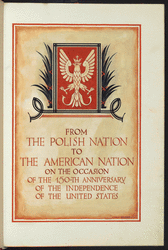
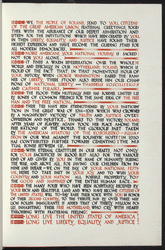
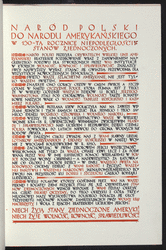
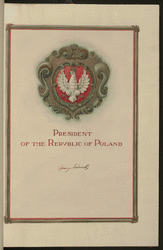
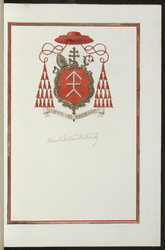
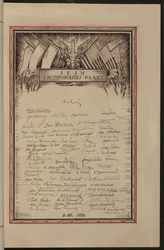
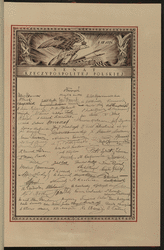
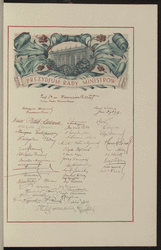
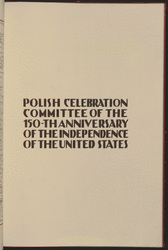
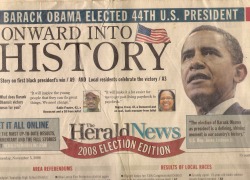
 RSS Feed
RSS Feed